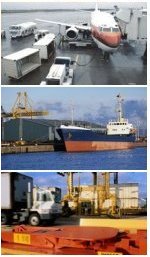

 |
 |
 |
Articles & Information<<Back to Articles/Information Index>> WTO RULES AGAINST AUSTRALIA’S RESTRICTIONS ON IMPORTS OF NEW ZEALAND APPLESOn 9 August 2010, a World Trade Organization (WTO) dispute settlement panel ruled that Australia’s current regulatory measures applying to apples imported from New Zealand were inconsistent with Australia’s obligations under the WTO rules. This case essentially concerns the legality under international trade law of our quarantine procedures. Australia had prohibited apple imports from New Zealand since about 1920 due to concerns about the spread into Australia of diseases such as fire blight and European canker. In 2006, Australia reversed the ban, but New Zealand complained to the WTO in 2007 that the new measures were WTO-inconsistent. The new measures included prescriptions regarding orchard farming practices and product treatment. The measures were based on an Import Risk Assessment carried out by Australia. The main finding of the WTO panel was that the Australian measures were inconsistent with Articles 5.1 and 5.2 of the Agreement on Sanity and Phytosanitary Measures (SPS Agreement). These provisions require measures designed to protect human, animal or plant life or health to be based upon a risk assessment that relies on sufficient scientific evidence. The panel found that the measures were based on erroneous assumptions and were not supported by scientific evidence. The panel further found that most aspects of the Australian restrictions breached Article 5.6 of the SPS Agreement, which provides that SPS measures shall not be more trade restrictive than required to achieve an appropriate level of protection. The outcome in this dispute follows the reasoning of an earlier decision involving restrictions imposed by Japan on apples imported from the United States. This dispute also raised some very important issues concerned the degree of regulatory autonomy exercised by WTO members in complying with WTO obligations. In particular, Australia unsuccessfully argued that it should have some discretion in conducting its own risk assessment and deciding upon the level of quarantine protection required. In other words, that WTO panels should apply a more deferential standard of review in examining WTO member measures. The panel decision is extremely detailed and runs for almost 600 pages. The Australian Trade Minister has announced that Australia will lodge an appeal of this decision to the WTO Appellate Body. Australia has traditionally had very strict quarantine policies in place due to its unique flora and fauna. Ross Becroft Please note that should you have any questions or issues regarding either potential or actual anti-dumping matters or review of government decisions generally, contact Louis Gross or Ross Becroft. |
|
|
Home |
Our Services |
Our People The information you obtain at this site is not, nor is it intended to be, legal advice.
Copyright ©2007 by Gross & Becroft lawyers . All rights
reserved. |